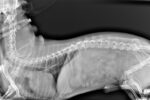Bones are vital components of the human body, providing structure, support, and protection to various organs and tissues. They play several essential roles, including:
- Support: Bones act as the framework for the body, supporting its weight and shape.
- Protection: Bones protect vital organs, such as the skull, shielding the brain and the ribcage protecting the heart and lungs.
- Movement: Bones, along with muscles and joints, enable a wide range of movements and provide leverage for muscle action.
- Mineral storage: Bones store essential minerals, such as calcium and phosphorus, which can be released when needed to maintain mineral balance in the body.
- Blood cell production: The bone marrow within certain bones produces red and white blood cells and platelets, vital for oxygen transport, immunity, and blood clotting.
Fractures and Disease
Bone fractures and diseases can compromise the functions of bones, leading to various health issues:
- Fractures: A break or crack in a bone, often caused by trauma, falls, or sports injuries. Fractures can be simple, compound, or stress fractures, depending on the severity and nature of the break. They can cause pain, swelling, bruising, and limited mobility.
- Osteoporosis: A disease characterised by low bone mass and deterioration of bone tissue, resulting in increased fragility and fracture risk. Osteoporosis primarily affects older adults, particularly postmenopausal women.
- Infections: Bacterial infections, such as osteomyelitis, can lead to inflammation, bone damage, and even amputation if left untreated.
- Bone cancer: Malignant tumours can originate in the bone or spread from other parts of the body. Bone cancer can cause pain, swelling, and weakened bones, increasing the risk of fractures.
Causes of Bone Disease
Several factors can contribute to bone disease, including:
- Age: Bone density tends to decrease with age, increasing the risk of fractures and osteoporosis.
- Genetics: A family history of bone disorders can increase the likelihood of developing similar conditions.
- Hormonal imbalances: Hormone fluctuations, such as decreased estrogen levels in women during menopause, can contribute to bone loss.
- Nutrient deficiencies: Inadequate calcium and vitamin D intake can weaken bones and increase the risk of fractures.
- Lifestyle factors: Smoking, excessive alcohol consumption, and a sedentary lifestyle can negatively impact bone health.
By understanding the functions of bones and the consequences of fractures and diseases, you can take steps to maintain strong and healthy bones. A balanced diet, regular exercise, and avoiding risk factors can help reduce the likelihood of bone disorders and ensure a better quality of life.

